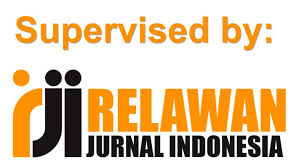Konsep Moderasi Beragama Perspektif Ulama Betawi: (Studi Atas Pemikiran Dan Aktivitas Dakwah Moderat Kh Abdullah Syafi’ie)
DOI:
https://doi.org/10.37092/khabar.v7i1.1085Keywords:
Religious Moderation, Betawi Ethnicity, Da’wah, Islamic Thought, Religious Practices,Abstract
The ethnic Betawi are the indigeneous religious population of Jakarta. For the ethnic Betawi, Islam functions not only as a religion, but also as a unifying and identify-building force. Their customs and culture are grounded in Islamic values, and their form of religiosity is characterized by profound respect and veneration for religious teacher (Muallim). One such figure of note is KH. Abdullah Syafi’ie. This paper aims strengthen the theory of intellectual genealogy of Betawi ulama Rakhmat Zailani Kiky and Rodwan Saini’s concept of ethnic Betawi religiosity. Using qualitative methods, including interviews, observation, and document analysis, the study analyzes KH. Abdullah Syafi’ie’s thought and da’wah activities. It argues that his da’wah in the 1970s and 1980s embodied religious moderation. Firstly, KH Abdullah Syafi'ie's concept of diverse moderation is consistent with Yusuf Qardhawi's principles of balance (al-Tawazun) and justice (al-ta'adul). Secondly, KH Abdullah Syafi'ie's implementation of religious moderation in the domains of education, da'wah, and society demonstrates its modernization of the curriculum and institutional framework. The field of da'wah encompasses da'wah bi al-lisan, bi al-qalam, and bi al-hal. In the social domain, KH Abdullah Syafi'ie established an orphan and dhuafa boarding school in Jatiwaringin, Pondok Gede, Bekasi, West Java.
Downloads
Downloads
Published
How to Cite
Issue
Section
License
Copyright (c) 2025 Zakaria Syihabudin, Muhamad Zen, Muhamad Afdoli Ramadoni

This work is licensed under a Creative Commons Attribution-NonCommercial-ShareAlike 4.0 International License.









